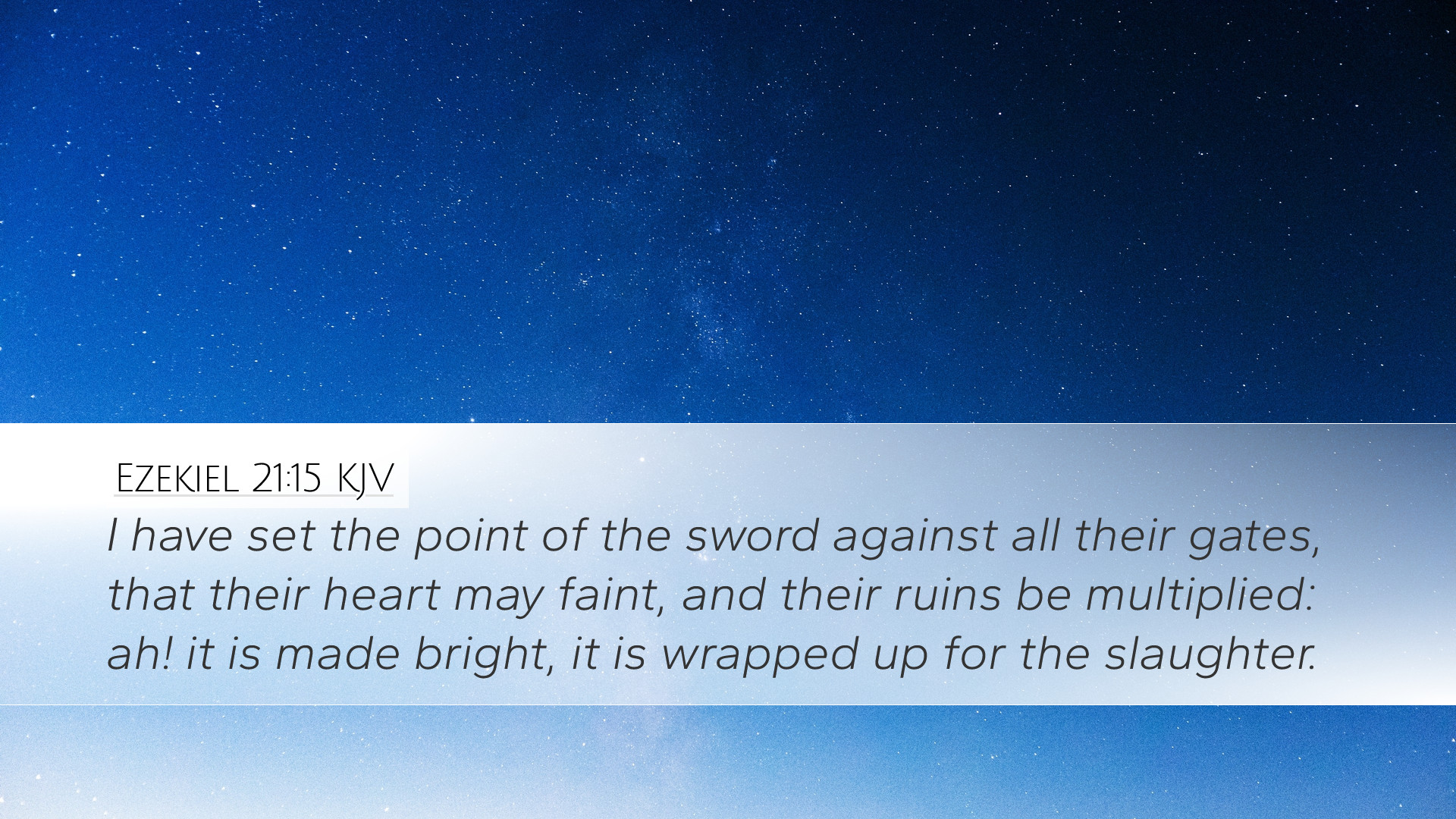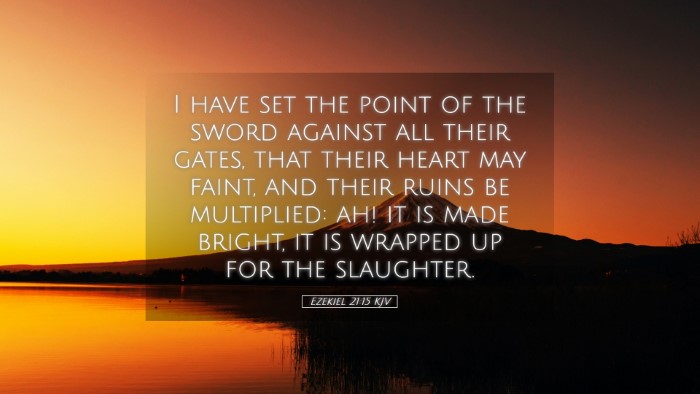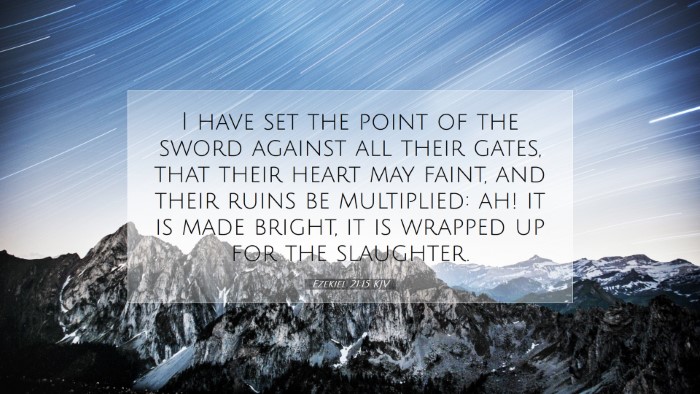Ezekiel 21:15 Commentary
Ezekiel 21:15 states: "I have set the point of the sword against all their gates, that their heart may melt, and the ruins be multiplied: ah! it is made bright, it is wrapped up for the slaughter." This verse serves as a profound declaration of the impending doom that the prophet Ezekiel foresees for Jerusalem and its inhabitants. In this commentary, we will explore the theological significance, historical context, and spiritual implications of this verse, drawing insights from notable public domain commentaries.
Historical Context
The backdrop of Ezekiel's prophecy revolves around the Babylonian siege of Jerusalem, which took place in the early 6th century BC. Ezekiel, a priest and prophet, was among those exiled to Babylon. His prophecies are often characterized by vivid imagery and stark warnings directed toward Israel's leaders and the people regarding their unfaithfulness to God.
Theological Significance
The imagery of the sword in this verse is particularly striking, highlighting God’s judgment against a rebellious nation. Below we explore various insights from esteemed commentators:
-
Matthew Henry:
Henry notes that the sword represents divine judgment and is a symbol of both punishment and deliverance. It cuts through pretense and reveals the true condition of the heart. The phrase "that their heart may melt" indicates a state of fear and despair, suggesting divine retribution is not merely physical but also psychological and spiritual.
-
Albert Barnes:
Barnes emphasizes the nature of God's sovereignty, asserting that the chaos and destruction experienced by Jerusalem occur under divine permission and design. He elaborates on the metaphor of the sword being bright and prepared, indicating that God has not only allowed the devastation but has orchestrated it as a means of divine justice against sin.
-
Adam Clarke:
Clarke focuses on the preparatory stage of this judgment, elaborating that the sword is depicted as being "wrapped up for slaughter," suggesting a premeditated action by God against His people. According to Clarke, this underscores a crucial point: the inevitability of judgment when the nation persistently strays from God’s commands.
The Heart of the Matter
The phrase "that their heart may melt" highlights a critical aspect of judgment: its purpose. The fear invoked by this imagery serves as a catalyst for potential repentance. It reflects God's desire not just to punish, but to elicit genuine contrition among His people.
Spiritual Implications
The implications of this verse transcend its immediate context, resonating with contemporary believers. The following points are particularly significant for pastors, students, and scholars:
-
Recognition of Sin:
This verse calls individuals and societies alike to recognize their shortcomings and sins. Just as Israel was warned, modern believers are urged to examine their lives and return to God.
-
Understanding Judgment:
The prophetic warning serves as a reminder that divine judgment is a real and consequential aspect of God's relationship with humanity. It is a call to be vigilant and to heed God's guidance.
-
Hope for Restoration:
Even amidst declarations of judgment, there is an implicit hope for restoration. Pastors and theologians can find solace in the understanding that God desires reconciliation rather than destruction.
Conclusion
Ezekiel 21:15 encapsulates a crucial theological theme: the balance between divine justice and grace. By studying this verse through the lenses provided by public domain commentaries, we can gain a deeper understanding of not only the historical implications of Ezekiel's words but also their continued relevance today. For scholars and leaders in the church, this verse challenges us to remain vigilant in our faith, to recognize the weight of sin, and to embrace the grace that God offers, even in the face of judgment.


